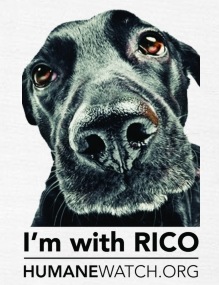HSUS and Co-Defendants Pay $15.75 Million in Racketeering Lawsuit
 The Humane Society of the United States (HSUS) shows TV commercials of abandoned and abused cats and dogs, raising money off of the confusion that it’s a pet shelter umbrella group. (It doesn’t run a single pet shelter anywhere.) Maybe its commercials should instead show HSUS’s lawyers paying a racketeering settlement with their tails tucked between their legs.
The Humane Society of the United States (HSUS) shows TV commercials of abandoned and abused cats and dogs, raising money off of the confusion that it’s a pet shelter umbrella group. (It doesn’t run a single pet shelter anywhere.) Maybe its commercials should instead show HSUS’s lawyers paying a racketeering settlement with their tails tucked between their legs.
This morning news broke that HSUS and its co-defendants, including two HSUS employees, have agreed to pay $15.75 million to settle a long-fought lawsuit filed against them under the Racketeer Influenced and Corrupt Organizations (RICO) Act—a law that’s been used to go after the mob.
The suit stems from litigation that animal rights activists, including an HSUS affiliate, pursued against the owner of the Ringling Bros. circus, Feld Entertainment. In that case, activists claimed that the circus was unlawfully harming elephants in its care, and their key witness was a former Feld handler.
However, as that case unfolded over a decade, a payment scheme was discovered going from plaintiffs and their lawyers to this witness. The court eventually threw out the lawsuit, finding that the witness was a “paid plaintiff” who was “not credible.” This paid witness even “lied” to the court.
Feld then filed suit under RICO, alleging bribery, illegal witness payments, and other torts. The ASPCA settled in late 2012 for $9.3 million. And today, the other co-defendants have paid $15.75 million.
The animal liberation movement has long been associated with extremist, bullying, and sometimes even terroristic tactics in pursuit of its radical goal to institute prohibition on how we use animals, whether for food, fiber, or entertainment. The FBI cracked down on the terroristic fringe over the past two decades. And the suit-wearing, lawyered-up part of the movement has now had its day in court. It comes up $15.75 million poorer, but with its inner workings exposed, the rest of society should feel better off.
Sadly, the real losers in this case are the thousands of individual donors who gave money to HSUS thinking that they were helping local animal shelters, only to find that their donations are footing the bill for HSUS’s mismanagement.



